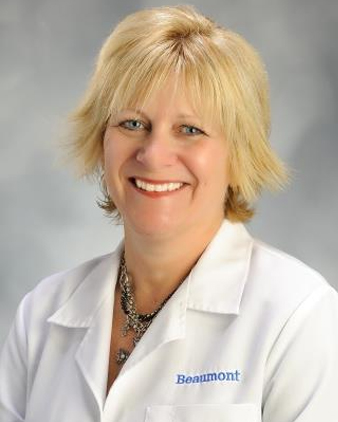Monday, August 13, 2018

Colorings, flavorings, chemicals, adhesives, dyes, coatings, paper, paperboard, plastics in food aren’t proven safe
In the August 2018 publication of “Pediatrics,” the American Academy of Pediatrics says some currently allowed chemicals in foods might best be avoided, particularly for children.
“Food Additives and Child Health” discusses emerging child health concerns related to the use of colorings, flavorings and chemicals deliberately added to food during processing as well as substances in food contact materials, including adhesives, dyes, coatings, paper, paperboard, plastic and other polymers, which may contaminate food as part of packaging or manufacturing equipment.
 Susan Youngs, M.D., an experienced Beaumont specialist in pediatrics and pediatric rehabilitation medicine, as well as neuromuscular medicine, reacts to and comments on AAP recommendations.
Susan Youngs, M.D., an experienced Beaumont specialist in pediatrics and pediatric rehabilitation medicine, as well as neuromuscular medicine, reacts to and comments on AAP recommendations.
Dr. Youngs supports the AAP’s suggested urgent needed reforms to the FDA’s current regulatory process for food additives. She gives specific examples of how food additives have negatively affected her patients at the Beaumont Children’s, Dearborn Center for Exceptional Families and suggests ways families can limit exposure to chemicals used to process, package and preserve everyday foods that aren’t adequately proven safe.
“It’s a positive move forward for kids’ health and safety,” said Dr. Youngs. “With more attention to and avoidance of dangerous food additives, I am hopeful we will see fewer children with immune dysfunction, autoimmune diseases and gastrointestinal issues. The AAP’s findings provide the hard data and medical science to support me and other clinical pediatricians working with patients and families.”
For years, Dr. Youngs has been receiving anecdotal evidence from her patients’ parents of how certain foods have impacted their children and how some have led to behavioral imbalances, or negative shifts in their children’s behavior.
Food and drug additives have negatively influenced her patients across a variety of diagnoses, such as attention-deficit/hyperactivity disorder, autism spectrum disorders and oppositional defiant disorder.
“Not all children are affected by these additives behaviorally, but in our patient population it has been evident to us for close to two decades,” Dr. Youngs said. Eating whole foods that are unprocessed and free of additives can benefit patients in these ways:
- helping stabilize mental health conditions, including depression, anxiety and ADHD
- helping prevent the chronic disease onset, such as obesity, heart disease, high blood pressure and type 2 diabetes
- stabilizing energy

Dr. Youngs’ patients are exhibiting positive results when their parents serve more fresh fruits and vegetables, whole grains and lean meats. She also recommends fewer dairy products, fried foods and wheat flour products, especially for her patients with behavioral disorders.
“We used to think that genes were hardwired and couldn’t be changed. Now, the study of genetics and DNA is changing the way we think about health and disease prevention,” said Dr. Youngs. “We can link environmental influencers to our genes, such as chemical exposures from food additives that lead to disease, such as cancer, autoimmune disorders and psychiatric illness.”
In addition, Dr. Youngs has been noticing that new generic formulations of medications created by different pharmaceutical manufacturers can cause problems in some patients because of differing ingredients
She said, “Each producer’s ingredients differ slightly. Our theory has been that it is the additives in the different formulations that cause these shifts. As a result, there have been some instances where we have requested a pharmacy return to a previous generic on behalf of our patients to ensure a positive return of behavioral regulation. Taking this extra step has helped many of our patients.”
CEF is an “all-comers” medical and rehabilitative facility in Dearborn. It treats all developmental disabilities, disorders and diagnoses. Patients at CEF range from mildly developmentally delayed to multiply impaired children with fragile health conditions. Many children there have cerebral palsy, muscular dystrophy, autism, intellectual disabilities or genetic syndromes. Some are dealing with conditions related to other illnesses, accidents or traumatic births.
